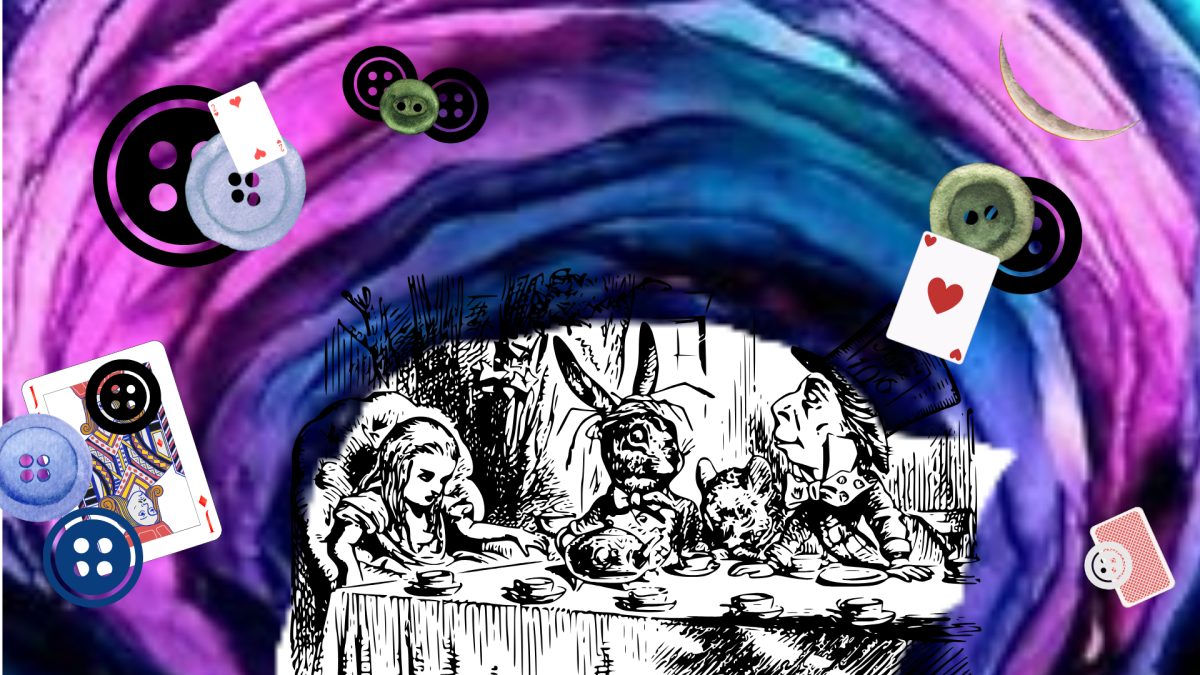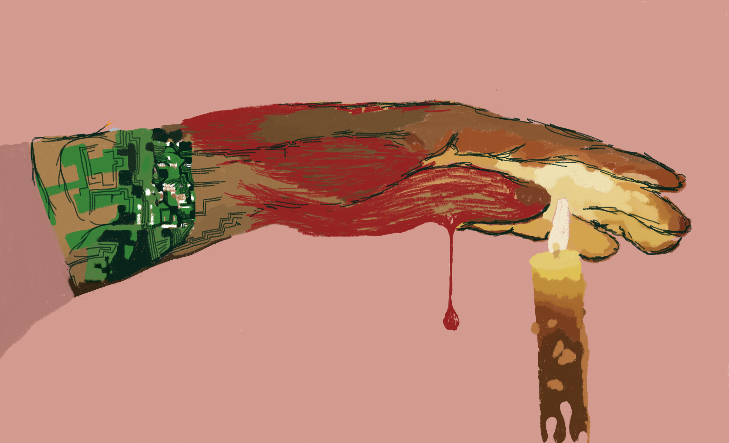From first glance, “Chromatica” seems unwelcoming to our planet. The album cover of Lady Gaga’s sixth studio album features fashionable Gaga trapped in a futuristic spaceship. The music videos for “Stupid Love” and “Rain on Me” share the aesthetics of a futuristic dystopia akin to “Mad Max” and “Blade Runner.” The tracklist itself is split into three sections, all introduced by sublime orchestral introductions more similar to a concerto than the typical pop album. Lady Gaga has canceled Earth, and judging by her recent feed, she’s having fun in outer space.
Like many of my favorite albums, my descent into Lady Gaga’s “Chromatica” was less of a familiar jump into nostalgia and more of a leap of faith across a new soundscape. I hadn’t jumped into a full album stream until I signed myself up for this review and honestly, I don’t regret taking that leap of faith. “Chromatica” did not leave me stranded in an alien dystopia, but rather reminded me of the homely nostalgia of Gaga’s earlier work.
For all intents and purposes, “Chromatica” is grounded in its earthly origins. It is an exploration of a fun time, of dancing at a party with no care in the world. The vibes are strong in this album, the instrumentals are clean and welcoming and the melodies are empowering. Gaga’s vocals? Impeccable and completely reflective of the power her voice has. She bellows and soars, putting out a strong performance across the tracklist. Celebration just comes naturally to the planet of Chromatica, and we are blessed to receive its sounds.
Standout songs in this album are scattered all over the tracklist, leaving little to no dull moments in the playback. The first section has two lead singles and a feature with Ariana Grande, but tracks like the reference-filled “Alice” cannot be dismissed. The second section hosts a feature with K-pop group BLACKPINK, alongside standout tracks like the robotic “911” and the powerful “Enigma.” The third and final section is the shortest, consisting of three strong, closer tracks that include a feature with Elton John, of all people. “Babylon” also has fun references to “ancient city styles,” reflecting on this homey party.
Among all of this intergalactic celebration, Gaga also provides us with an introspective look into her life. Gaga has always served us a human connection in her discography, and among the uncanniness of the futuristic aesthetic, she continues to serve. Gaga, like many of us, longs for emotional utopia, for empowerment and recovery from trauma. A close look at Gaga’s lyrics gives us a close look into her humanity, all while celebrating our shared connection.
“Chromatica,” like any work of fiction, is not perfect. It’s a vibe-heavy album; instrumental variety is not the forte of this album, but rather the focus of dance-pop instruments such as clean synths and quirky piano chords. The short tracks are also a double-edged sword Gaga wields. This album never drags, but rather soars across its 43-minute runtime, like aliens rushing to invade Earth. However, the short tracks do leave me wanting more. It almost feels blasphemous now that I haven’t jumped on the Lady Gaga stan train, because after listening to this, I’m left wanting more.
If you haven’t already, give the album a listen. At worst, it’s a fun album to keep around for Zoom parties and future club trips, and at best, it’s a solid reminder that Lady Gaga continues to be a strong pop artist after all of these years. Personally, I’m hinging on the latter, and I’m excited for what Gaga will serve in the future after what has to be one of the most enjoyable pop albums to listen to. Go girl, give us more.



















